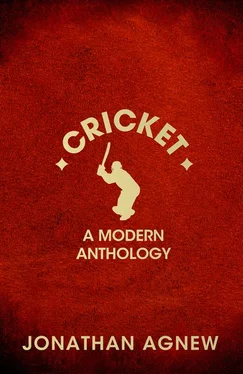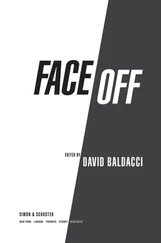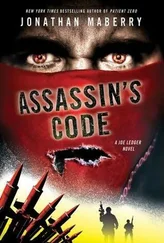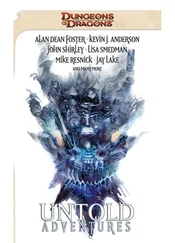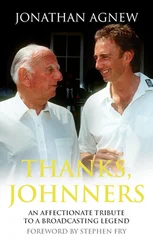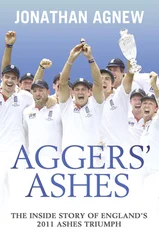It all became clear on the Sunday morning, which was the final day of the match, when the News of the World exposed the set-up in which an agent, Mazhar Majeed, was seen accepting £150,000 from the undercover reporter. The deal was that Majeed would arrange for three no-balls to be delivered to order, two by Amir and one by Mohammad Asif. Sure enough, the no-balls were bowled precisely as specified, and the Pakistan captain, Salman Butt, was revealed as the man who had passed the instructions to his bowlers.
The evidence appeared to be conclusive, and this was the verdict of the ICC, which conducted a disciplinary hearing despite the ongoing criminal investigation. All three players were found guilty and, on 5 February 2011, received lengthy bans – Butt for ten years, with five suspended; Asif seven years, with two suspended; and Amir five years. The players maintained their innocence, but in November 2011 were found guilty at Southwark Crown Court of conspiracy to cheat at gambling and conspiracy to receive corrupt payments. Butt was jailed for two and a half years, Asif for one year and Amir for six months. The agent, Majeed, was imprisoned for two years eight months. The case was seen as a watershed moment in the battle that every sport faces against corruption, and it forced Pakistan’s authorities finally to take seriously the long-held view that its cricket team was more exposed to corruption than any other.
However, there was a shock in store for followers of county cricket when, in January 2012, a young Essex fast bowler, Mervyn Westfield, pleaded guilty to accepting £6,000 to deliberately under-perform in a match against Durham in 2009. He was imprisoned for four months after alleging in court that he had been persuaded to accept the bribe by the Pakistan and Essex leg-spinner, Danish Kaneria, who had been initially arrested with Westfield. Kaneria was released without charge, and denies Westfield’s allegations. However, the case underlines the extent to which corruption has infiltrated the game of cricket and that, potentially, any match televised live to the Indian subcontinent is at risk.
Why is it that cricket has attracted so many controversies over its relatively short life? Racism, corruption, politics – the great game has endured more than its fair share of issues, all of which have threatened its welfare. At least part of the answer must lie in the fact that it is a traditional sport founded upon a strict moral code of fair play and sporting conduct. Any threat to those principles is big news, and I am quite convinced that cricket crises – particularly of the political variety – make bigger headlines even than football crises because of the game’s historical links with the Commonwealth.
It is a fact that cricket has at times played a crucial role in shaping the world in which we live. This is plain to see in the D’Oliveira crisis, which made a nonsense of the often cowardly ambition of many to keep sport separate from politics. Separating the two is almost impossible to achieve and, besides, when you consider the dismantling of apartheid, sport – and cricket in particular – made a significant contribution. The D’Oliveira affair led directly to the 1977 Gleneagles Agreement in which Commonwealth leaders agreed to boycott all sporting contact with South Africa as part of the international fight against apartheid. Supporters of the rebel cricket tours that broke that agreement will say that the English XI tour in 1990, led by Mike Gatting, played a part in speeding up the end of the reviled political system in South Africa. It did, but not because it was the right thing to do. The ill-timed and insensitive tour was a financial disaster for the South African Cricket Union, coinciding as it did with the unbanning of the African National Congress and Nelson Mandela’s release from prison. The tour became a focal point for demonstrators – Gatting famously admitted to hearing a ‘few people singing and dancing’ outside his hotel – and it quickly became obvious that the tour was unsustainable, and was called off.
Sport and politics are inextricably linked, but the type of sustained pressure that worked against South Africa does not work in every situation. It would not, for example, have made the slightest impression on Robert Mugabe’s stranglehold on South Africa’s neighbour, Zimbabwe, because sport does not play such a strong part in that country’s everyday life. However, an England cricket tour to Zimbabwe in 2003 did allow a precious opportunity for Western journalists – banned at the time by the regime – including myself to enter the country. Once inside, we were able to report on life within the country, from the consequences of rampant inflation to the witnessing of farms being burned to the ground.
It might be everyone’s ideal to keep sport and politics as far apart as possible, but not only is that naive, but it also denies sport the opportunity to play its part in civilizing society and improving lives. A number of great South African cricketers had their international careers ruined by the Gleneagles Agreement, and have every reason to be bitter towards the politicians who drove their own country into sporting isolation. Mike Procter, as fine an all-rounder as there has ever been, was restricted to just seven Tests before the curtain came down. ‘What’s one life,’ he asked me, ‘compared to the millions who were liberated?’

Конец ознакомительного фрагмента.
Текст предоставлен ООО «ЛитРес».
Прочитайте эту книгу целиком, купив полную легальную версию на ЛитРес.
Безопасно оплатить книгу можно банковской картой Visa, MasterCard, Maestro, со счета мобильного телефона, с платежного терминала, в салоне МТС или Связной, через PayPal, WebMoney, Яндекс.Деньги, QIWI Кошелек, бонусными картами или другим удобным Вам способом.
